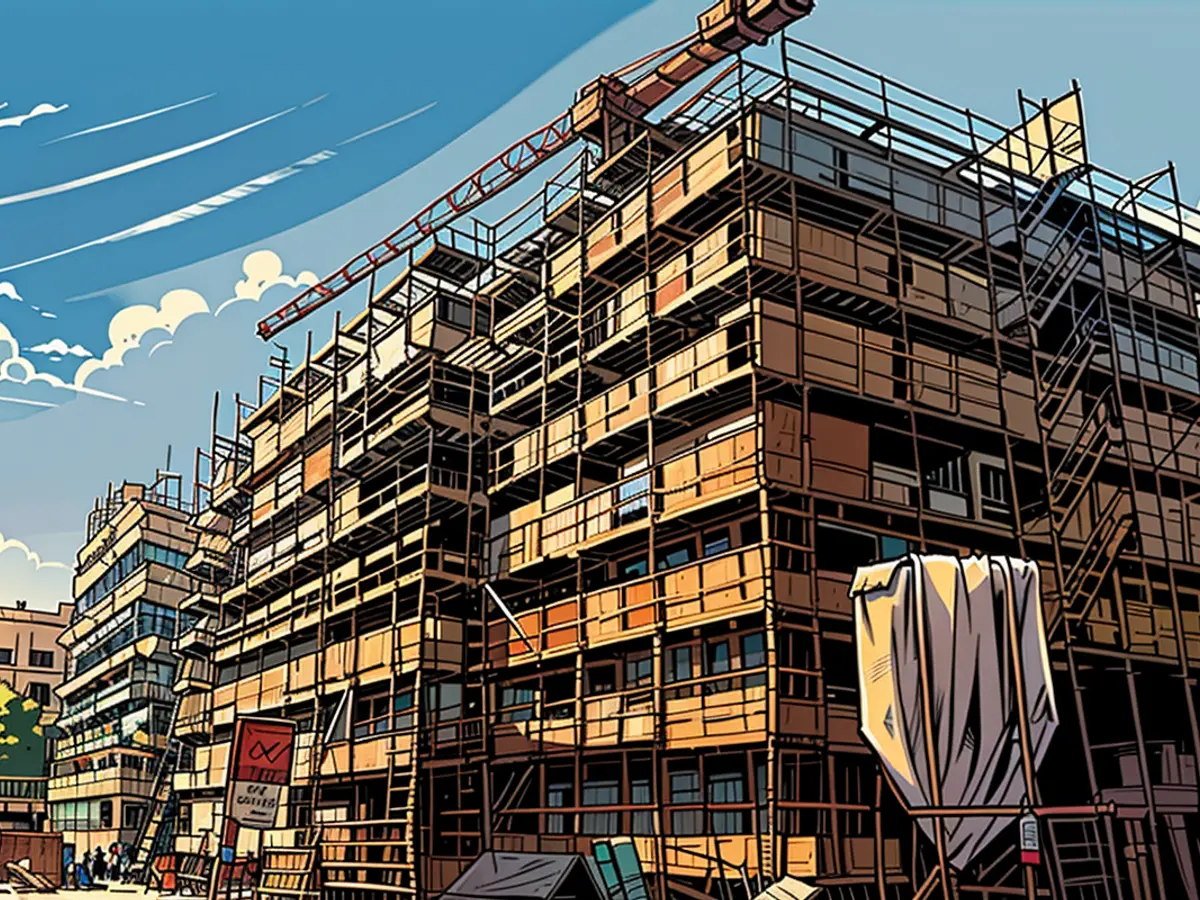- Observing a significant decrease in housing market trends, as reported by the association.
In the German state of Hesse, there's projected to be a substantial decrease in building permits. According to the Association of Southwestern German Housing Companies (VdW), there was a 26.5% reduction in permits issued during the first half of 2024 compared to the previous year. This equates to a decrease of 41.8% if we compare it to 2022. The Hessian State Statistical Office has also highlighted this trend.
Though the number of building completions has stayed relatively steady, VdW board member Axel Tausendpfund views the "dramatic drop in building permits" as an early warning sign of rising housing demands in Hesse. Tausendpfund believes, "For many, it's already tough to find affordable housing, and it will only get harder in the future." This is further compounded by the projected decrease in land purchases, which could worsen the housing scarcity in the long run.
In good times, the VdW believes that not enough housing has been constructed. Now, the building industry crisis is hitting hard. "The scarcity of building permits is preventing the completion of potential future apartments," Tausendpfund stresses. The head of the Hesse-Thuringia Construction Industry Association refers to this as a "ticking time bomb."
Price increases are cited as a factor. While rents increased by 6.8% last year, construction and maintenance costs have risen by 25% according to the VdW. The average net cold rent in Hesse is 8.21 euros per square meter, but it's just 7.19 euros for companies in the association. This makes cost-effective construction no longer feasible.
To reinvigorate construction activity in the state, the association proposes immediate political support. The initial step would be to lower construction interest rates to 1%. "This wouldn't be a state handout, but an investment. The subsequent construction boom would generate the necessary tax revenues," explains the VdW board. Additionally, the Hessian Building Code should be simplified to expedite approval procedures. This could involve streamlining processes like extensions to existing buildings or waivers for parking spaces. As a third initiative, the association suggests that the state government enhance funding programs for serial construction with prefabricated components.
Since mid-year, an expert commission established by the Hessian Ministry of Economics has been reviewing a revision of the Building Code. The VdW is also a part of this commission. Tausendpfund acknowledges that it's too soon for an interim report. Economics Minister Kaweh Mansoori (SPD) anticipates that "shortly, we'll have practical proposals from the commission on how we can make housing construction more affordable and faster through fewer regulations and bureaucracy." Currently, the commission is focusing on three areas: "We aim to make the expansion and renovation of existing buildings easier. We're targeting acceleration and simplification. This implies that there should be more instances where no building permit is required. And we also see potential for adjustments in the existing parking space regulations," the minister clarifies upon request from the German Press Agency.
The Association of Southwestern German Housing Companies (VdW) represents around 200 private and public housing companies in Hesse and southern Rhineland-Palatinate, with a collective total of 400,000 apartments.
The dramatic decrease in building permits in Hesse, as highlighted by VdW board member Axel Tausendpfund, is contributing to a potential shortage of housing units. This scarcity of potential future apartments is preventing the completion of necessary housing units, making it even more challenging for many individuals to find affordable housing in the region.
In an effort to reinvigorate construction activity in Hesse, the VdW proposes immediate political support, including lowering construction interest rates to 1%, simplifying the Hessian Building Code, and enhancing funding programs for serial construction with prefabricated components.








